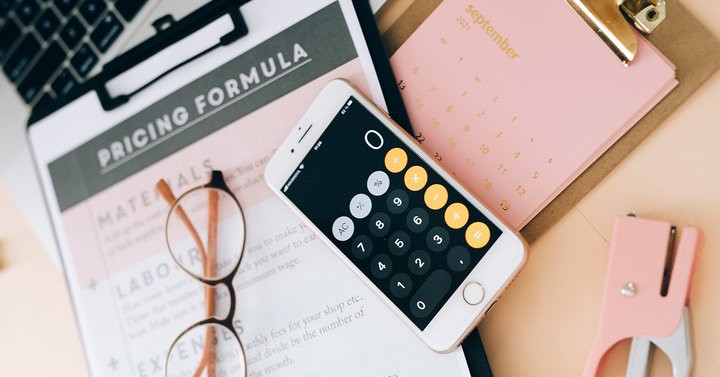Invoicing Etiquette: Can I Charge Interest on Late or Unpaid Invoice Payments?

Overdue payments and unpaid invoices can create cash flow issues, but unfortunately, this tends to be a common problem for small businesses.
An obvious solution may be sending a late payment charge or even charging interest on the original fee. But is it really that simple?
This article explains the rules for overdue payments, how to apply late fees to invoices, and some tips so you can get your money from difficult clients.
Can I charge for late payments?
You can charge for late payments, but only if a contract or agreement is in place that allows for it. By this, we mean your invoice.

Invoices are considered legal documents, so it’s important to clearly state your payment terms and late fees on each one.
It’s also best to agree to strict payment deadlines—as well as any late payment penalties—before you begin working with a new client.
Invoices should always include an exact due date. It’s common to set this as 30 days, but you can set specific payment terms for each sale or customer.
According to UK law, if a due date is not specified, then the invoice must be paid within 30 days (60 days for business transactions) from the invoice issue date.
Should I charge late fees?
Late payment charges can be an added incentive to get clients or customers to pay you sooner, but you should ask yourself whether it’s really worth it first.

There are some things to consider before charging in blindly.
Be sure that you are satisfied the work fulfilled was worth the amount invoiced. Most clients will let you know if they consider your services to be below their expectations; however, some won’t and might be deliberately delaying their payment rather than addressing their concerns.
Sending them a late payment fee at this point could only further aggravate the situation, so it might be best to find out whether they are happy first.
It’s also best to check that they were aware of late payment fees before chasing clients for cash. If you didn’t already agree to strict payment terms beforehand, then double-check it’s clear on your original invoice and not hidden in small print.
If you have clearly stated your late fee policy, it doesn’t mean you have to enforce it. Weigh up each situation before imposing the same policy on everyone.
It could be that the client can’t afford to pay, or they may be going through a personal challenge such as a bereavement or other unforeseen circumstances.
How much should I charge?

The amount you decide to add on as an overdue payment fee can vary. It’s typically a flat rate charge or a percentage of the amount owed, depending on what you set out in your terms.
A flat rate is an amount added to the total owing of the invoice that remains unpaid, while a percentage charge is a proportion of the total of an invoice that remains unpaid.
In the US, there are different laws in each state for the acceptable amount of interest you can charge, so it’s best to familiarize yourself with those first.
Keep in mind that the purpose of the late fee is to motivate timely payment and not to create an extra revenue stream, so if you are charging either a flat rate or percentage fee, consider whether you think it’s a reasonable amount.
How to apply late payment fees to invoices

If the payment is late, you should first email the client and attach the original invoice to it, politely reminding them that their invoice is due.
Tip
Sufio lets you automatically send reminders for overdue invoices on Shopify. All you need to do is include due dates, and our app will take care of the rest.
Give them a reasonable amount of time to reply before following up again with a phone call. If there’s no response, leave a message and try again 48 hours later.
Keep a record of making these calls, and if you’re still unable to get hold of the client, it might be time to consider getting some legal advice.
If you did not specify any late fees on the original invoice, you could send a new invoice with the late fees included. However, you will be in a tougher position.
It’s also worth considering whether this will damage your relationship with the client, so decide on a case-by-case basis.
Invoicing software with payment terms
The best way to make sure you get paid on time is to send your invoices promptly and give your clients all the information they need to pay you. For an easy way to do this, why not append payment terms to your PDF invoices with Sufio?
Sufio is an automated professional invoicing app that sends invoices straight to your customer’s email inbox.
Invoice templates in Sufio are fully-customizable, so you can set out the exact payment terms you need—including any overdue payment fees—on every document to ensure you have a legal right if you find yourself in a late payment situation.
Get in touch and book a demo with one of our friendly team members to learn more about how Sufio can help you!
Professional invoices for Shopify stores
Let Sufio automatically create and send beautiful invoices for every order in your store.
Install Sufio - Automatic Invoices from the Shopify App Store